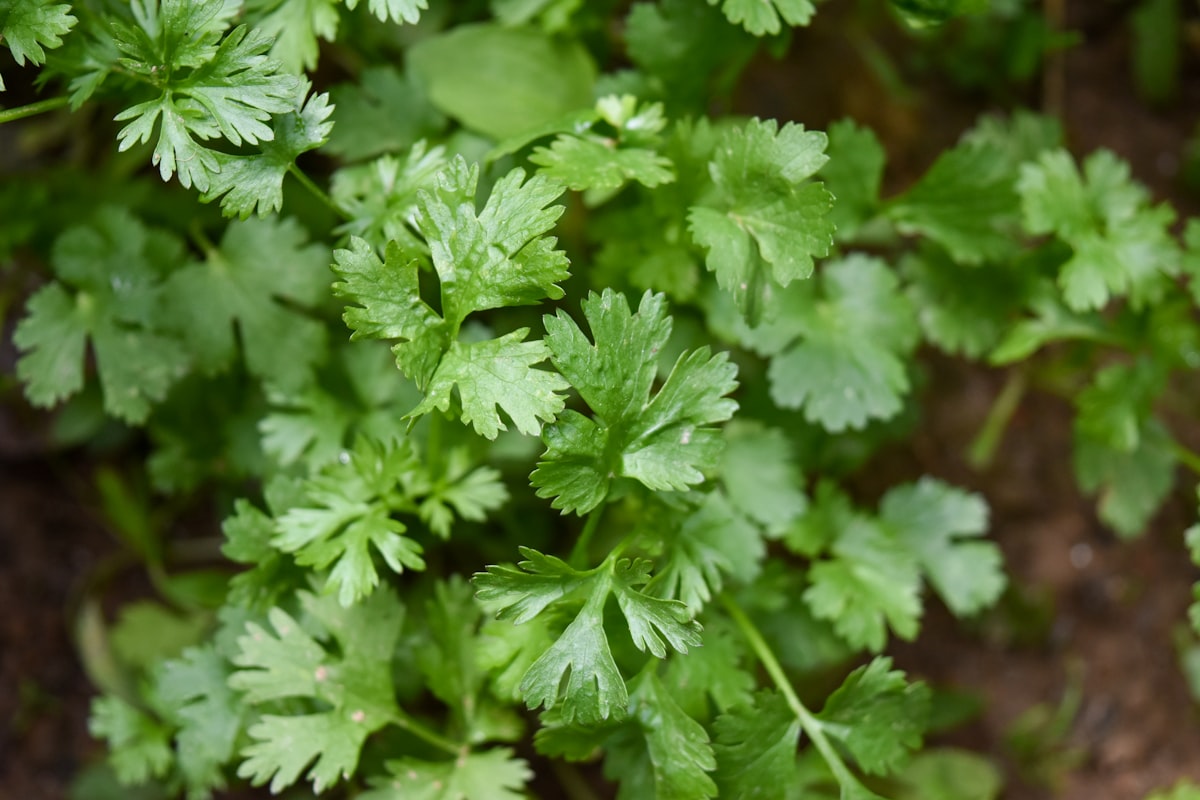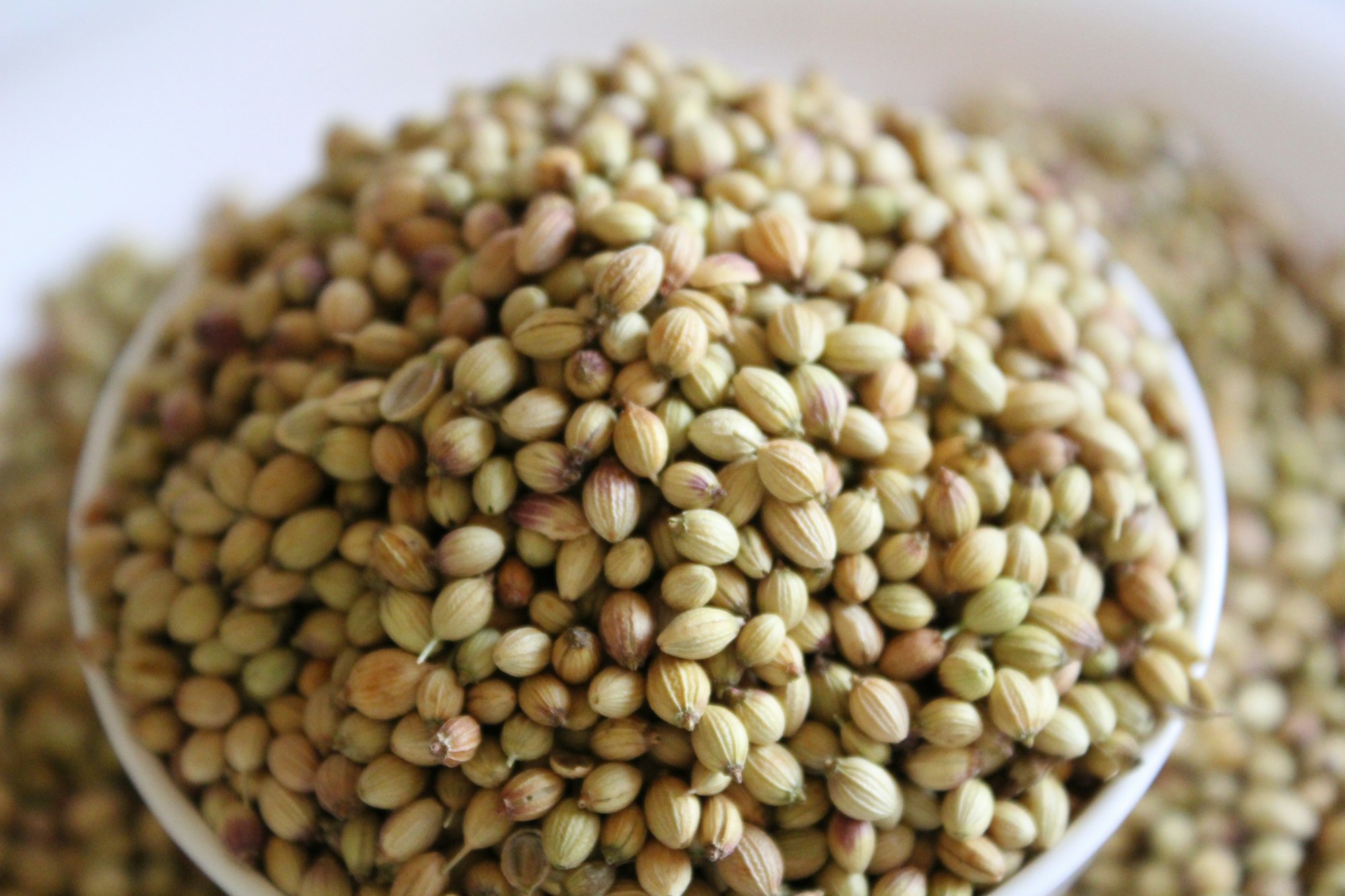Dhaniya (Coriander) Introduction & Health Benefits
Dive into the World of Dhaniya (Coriander)! Explore Its Introduction and Unlock a Wealth of Health Benefits. Spice Up Your Life, Nourish Your Well-being. 🌿🍽️

Dhaniya is the Hindi name for the commonly used kitchen herb Coriander. Coriander, also known as cilantro, is a popular herb with a range of health benefits. It is an annual herb with the scientific name Coriandrum sativumin of the Apiaceae family. It is native to the Mediterranean region and is commonly used as a spice in cooking. The leaves and seeds of the coriander plant are used in cooking and have a distinct, fresh flavor or aroma. The leaves are often used in dishes from Latin America, the Middle East, and Asia, while the seeds are commonly used in Indian and Middle Eastern cuisine. The plant is easy to grow and can be grown in a variety of conditions.

Indian Names
It is known by many different names in India, depending on the region and language. Some of the most common Indian names include:
Dhaniya (Hindi)
Kothambari (Kannada)
Kothimir (Marathi)
Dhaniyalu (Telugu)
Dhania (Bengali, Punjabi, Urdu)
Kottamalli (Tamil)
Malli (Malayalam)
Dhana (Gujarati)
Dhanyak (Oriya)
It is also known as Chinese parsley and Chinese parsley in other parts of the world.
Medicinal Properties
It is known to have a variety of health benefits. Some of the most notable benefits include:
Anti-inflammatory properties: Coriander has been found to have anti-inflammatory properties, which can help reduce swelling and pain in conditions such as rheumatoid arthritis and osteoarthritis.
Antioxidant properties: Coriander is rich in antioxidants, which can help protect the body against damage from free radicals and reduce the risk of certain types of cancer.
Antibacterial properties: Coriander has been found to have antibacterial properties, which can help kill off harmful bacteria in the body.
It is important to note that more research is needed to confirm these benefits and understand the underlying mechanisms. Also, coriander is safe to consume for most people in normal amounts, but in some cases, people may be allergic to coriander.
Coriander Benefits in Home Remedies
It has been used in traditional medicine for centuries and is known for its medicinal properties. Some of the most common home remedies that use coriander include:
Digestive problems
Coriander can be used to soothe stomach aches, indigestion, and other digestive issues. A tea made from coriander seeds can be consumed after meals to help with digestion.
Coriander has been used for centuries as a digestive aid and is known to help relieve digestive issues such as bloating, indigestion, and nausea. It has carminative properties which help to relieve gas and promote the elimination of waste from the digestive system. Additionally, coriander has antibacterial properties which can help to improve gut health and prevent digestive infections. You can add coriander to your diet by using it as a spice in cooking or by drinking coriander tea.
Insomnia
Coriander seeds can be made into a tea and consumed before bed to help with insomnia and other sleep-related problems.
Coriander has relaxing properties that can help you fall asleep faster and stay asleep throughout the night. The scent of coriander is believed to have a calming effect on the body and mind, while its essential oils have sedative properties that can promote better sleep. You can use coriander in a variety of ways to help improve your sleep, including:
- Drinking coriander tea before bed
- Adding coriander to your diet by using it as a spice in cooking
- Using a coriander essential oil for aromatherapy. It’s important to note that while coriander may have sleep-promoting benefits, it’s not a substitute for a healthy sleep routine and lifestyle, and consulting with a doctor should be considered if you have ongoing sleep issues.
Anemia
Coriander is rich in iron, which can help increase the production of red blood cells and treat anemia.
Coriander may have potential benefits in treating anemia, as it is a good source of iron and other minerals that are important for maintaining healthy red blood cell levels. Additionally, coriander has antioxidant properties which can help to reduce oxidative stress in the body and prevent damage to red blood cells. Some ways to include coriander in your diet include:
- Adding fresh coriander leaves to soups, stews, or curries
- Using coriander in a marinade or as a seasoning in cooking
- Drinking coriander tea It’s important to note that coriander should not be used as a sole treatment for anemia and that a balanced diet, adequate iron supplementation, and medical care should be the primary methods for treating anemia.
High blood pressure
Coriander has been found to help lower blood pressure and can be consumed as tea or added to meals to help control hypertension.
Coriander has been traditionally used as a natural remedy for high blood pressure due to its hypotensive properties. Studies have shown that coriander can help to lower blood pressure levels and improve circulation. This may be due to its ability to relax blood vessels and improve blood flow, as well as its antioxidant properties which can help to reduce oxidative stress in the body.
Blood sugar control
Coriander has been found to have a beneficial effect on blood sugar levels, which can be helpful for people with diabetes.
Coriander has been shown to have potential benefits in managing blood sugar levels, and is commonly used as a natural remedy for diabetes. Studies have shown that coriander can help to lower blood glucose levels and improve insulin sensitivity, potentially due to its ability to slow down the absorption of carbohydrates and stimulate the release of insulin.
Cardiovascular health
Coriander has been found to help lower cholesterol levels and blood pressure, which can reduce the risk of heart disease.
Coriander may have potential benefits for cardiovascular health due to its ability to lower blood pressure, reduce oxidative stress, and improve cholesterol levels. Some studies have shown that coriander can help to improve the function of the endothelium (the inner lining of blood vessels) and reduce inflammation, which can help to lower the risk of heart disease.
Skin problems
Coriander leaves can be made into a paste and applied to the skin to help clear up acne and other skin problems.
Coriander has been used as a traditional remedy for various skin problems, such as acne, rashes, and other inflammatory skin conditions. Its antibacterial and anti-inflammatory properties make it a popular ingredient in natural skincare products. It can help to soothe irritated skin and reduce redness and inflammation. Some ways to use coriander for skin health include:
- Using coriander seed oil or extract in skincare products
- Applying a coriander paste or infusion to the skin as a face mask
- Drinking coriander tea or using it as a skin rinse It’s important to note that coriander should be used as part of a comprehensive skincare routine and that individual results may vary.
Mouth ulcers
Coriander leaves can be chewed to help soothe mouth ulcers and other oral problems.
Coriander has been used as a traditional remedy for mouth ulcers due to its antibacterial and anti-inflammatory properties. These seeds have been used to relieve pain and promote the healing of mouth sores. Some ways to use coriander for mouth ulcers include:
- Chewing on coriander seeds
- Rinsing the mouth with a coriander seed infusion
- Drinking coriander tea
Eye Health
Coriander has been used as a traditional remedy for various eye conditions due to its anti-inflammatory and antioxidant properties. Some studies have shown that coriander can help to improve vision and reduce eye strain, particularly when used in combination with other natural remedies such as fennel and anise. Some ways to use coriander for eye health include:
- Using coriander seed oil or extract in eye drops
- Drinking coriander tea
- Eating a diet rich in coriander
So, if you are suffer from the above-mentioned disorders then use these remedies to get the best herbal effect of this wonder herb.



